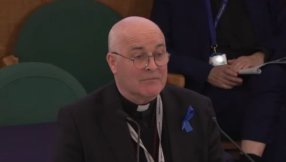
Much – probably too much – has been recently made of a number of individuals who have announced that they now feel they are no longer evangelical Christians, or even Christians. Although it's tempting to lump these together under the old term apostasy, the reality of what we are seeing is not a single, simple phenomenon.
So, at one extreme we have a few church leaders who, after years of faithful labour, have become burnt out and tiptoed away from their ministry and the faith. At the other extreme we have men and women who, having decided to reject the Christian faith, have defiantly declared that the fault lies not with them, but with Christianity or 'the church'.
Some of these individuals are exhibiting what is being called 'de-conversion': they are now making aggressive attempts not just to defend their departure but to win converts to their new beliefs.
What are we to make of it all? My first response would be 'actually, not a lot'. I believe it's a handful of cases magnified by the noisy echo chamber of the internet into something that seems more significant than it is. The sad fact is that departures from the faith are not new. In the Old Testament we see both Elijah and Jonah running away from their calling (1 Kings 19; Jonah 1).
In the Gospels, we have a warning from Jesus about falling away. The letters of the New Testament give similar warnings (2 Thessalonians 2:3, 1 Timothy 4:1–3, Hebrews 3:12; 6:5–8; 10:26). That turning your back on faith is not a hypothetical possibility is demonstrated by such people as Judas, Hymenaeus and Alexander (1 Timothy 1:20), and Demas (2 Timothy 4:10). History shows us other sad stories including a fourth-century Roman emperor, known to history as 'Julian the Apostate'.
In one sense, there is nothing new here. Yet with these cases of 'de-conversion' in particular, there is a genuine twenty-first-century novelty. It is that those involved do not describe their action with any sort of humility or sorrow but instead portray it as some noble and heroic triumph over the unthinking Christian faith. Repeatedly we read that what they left was 'naïve', 'outdated' and 'restrictive'.
What lies behind these departures from faith? It is notable that there seems to be no particular intellectual reason. None, to my knowledge, have claimed that they have left the faith because of fresh archaeological discoveries, newly translated texts or some devastating atheist critique.
One fundamental factor, however, exists which could simply be called a 'spiritual restlessness'. This is a virus that has always affected the church in various degrees and is a mindset that finds itself bored with the 'old-fashioned' gospel and constantly hungers for some sort of theological novelty.
The result today is that we have a number of individuals who describe themselves as being 'post-evangelical' or 'post-Christian'. Ironically, for all the language of novelty, this is the ancient problem that Saint Paul memorably described as 'itching ears' (2 Timothy 4:3); a seemingly insatiable urge to stray beyond the secure boundaries of historic Christianity.
I have objections to this search for 'something new'. One is that I understand my orders from God to be to transmit the faith, not to transform it. Another objection is purely pragmatic: despite their adoption of the language and ideals of contemporary society, I do not find these reimagined versions of Christianity to be either producing converts, filling churches or transforming lives. Still another objection is that I am certain that once you ignore the solid, fixed anchor points of trusting Scripture, you have very little to hold you fast on what is the most slippery of slopes. I fear that today's post-evangelical is in real danger of becoming tomorrow's post-Christian.
In a further blog I want to make some proposals as to how we can all avoid wandering off the path of faith for the arid wilderness of unbelief. Here, though, let me end with three suggestions as to how we respond to those who have left the faith.
The first suggestion is that we must show grace. While we cannot agree with what such individuals have done, we do not know what battles they have fought. Those who do not find themselves in leadership positions need to remember that the wind blows more strongly on the mountaintop than in the valley. Indeed, one of the devil's most desired strategies is to encourage leaders to be leavers. A practical application of grace is that we pray for these people. The Bible speaks not just of those who departed the faith but of those who came back: consider Elijah, Jonah, Peter and John Mark. Although it will make for the clumsiest of words, I look forward to seeing cases of 'de-de-conversion'.
A second suggestion is that we should refrain from speculating on the spiritual state of these individuals and whether they are (or were ever) genuine members of the body of Christ. God alone knows and that's good enough for me.
A third suggestion – and it is perhaps the most important – is that we all need to beware of any sense of superiority. That is not simply unjust but unwise. As Paul says in 1 Corinthians 10:12, 'So, if you think you are standing firm, be careful that you don't fall!'
'To him who is able to keep you from stumbling and to present you before his glorious presence without fault and with great joy –to the only God our Saviour be glory, majesty, power and authority, through Jesus Christ our Lord, before all ages, now and forevermore! Amen.' (Jude v. 24–25)
Rev Canon J John is an evangelist and the director of the Philo Trust. Find him online at www.canonjjohn.com













